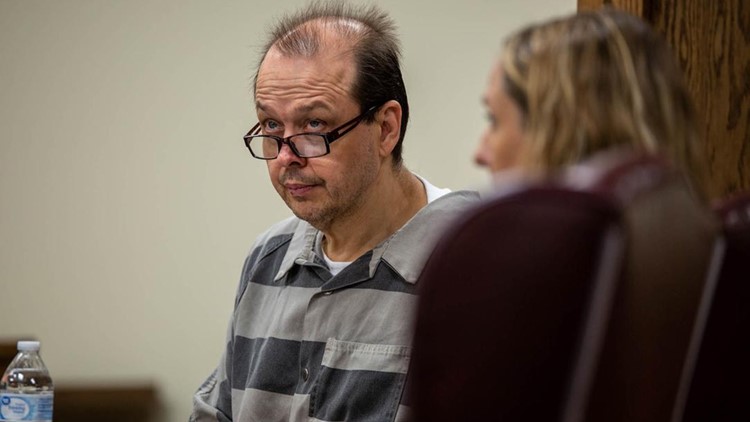ANDERSON COUNTY, Texas — An Anderson County judge has recommended denying a death row inmate's appeal seeking to overturn his 2003 conviction in which he was found guilty of killing his 2-year-old daughter.
Robert Roberson III, 55, has been on death row since 2003 in connection with the death of his daughter Nikki Curtis.
According to the Texas Tribune, Roberson was set to be executed in 2016; however, the Texas Court of Criminal Appeals halted the execution, sending it back to trial court in Anderson County.
In January, his lawyers made claims of junk science (investigative material that is later discredited) resulted in his conviction and death penalty sentence.
On Monday, 87th District Court Judge Deborah Evans filed a document that recommended against his conviction being overturned, disagreeing with claims defense lawyers made during evidentiary hearings.
The Texas Department of Criminal Justice records show Roberson took his daughter to the hospital saying she had fallen out of bed. She had severe trauma to her head and died from her injuries in Dallas the next day.
During her closing arguments, Gretchen Sween, Roberson’s attorney, said the girl’s death was not a crime, just an accidental and natural event. She described "Shaken Baby Syndrome," which was one of the causes of Curtis' death listed at trial, as science that has since been disproven.
Evans said the syndrome remains a fair medical diagnosis and also notes in the report that SBS was not the sole cause of child's death. Records also showed multiple impacts of blunt force injuries.
Roberson's lawyers also made claims that false testimony was made during the 2003 trial; however, Evans denied these assertions were not proven in her review.
Evans also found that Roberson "failed to provide any newly discovered evidence that was not available at trial that unquestioningly establishes his innocence nor any evidence that would show that no reasonable juror would have convicted in light of any newly discovered evidence."
Now, that Evans has made her recommendation, it will be sent to the Texas Court of Criminal Appeals to make a decision on the matter.



